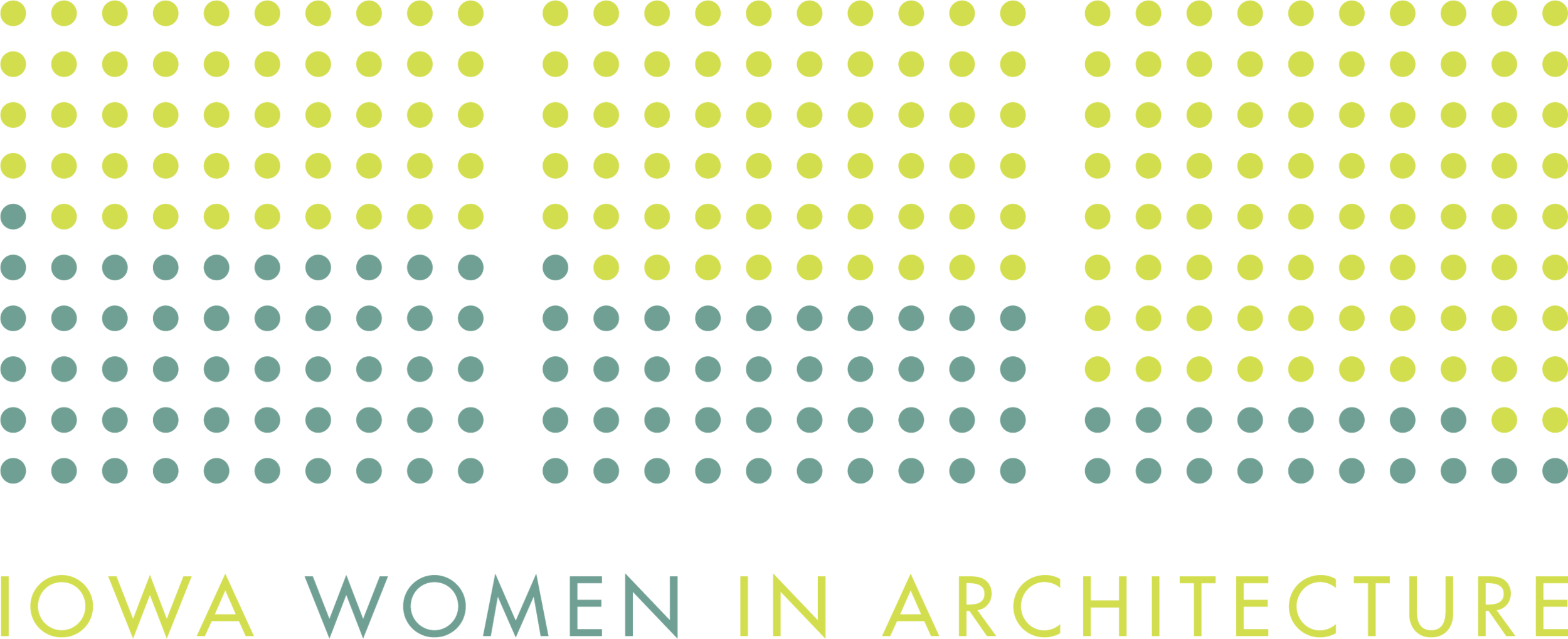Founder of the Month: Ann Sobiech Munson, AIA CSI CCS

Q: Where do you work and what is your current role?
A: Substance Architecture; architect and specifier; I write/coordinate all the specifications in the office.
Q: Why did you choose the field of architecture?
A: Long story. I earned my undergraduate degree at a liberal arts college, Central College in Pella, with a double major in English and Spanish. I spent a third of my undergraduate education studying outside the US, in Mexico, the UK, and Spain. Right after graduation, I entered an MA/PhD program in English at Emory University, where I began to specialize in medieval and Renaissance literature. About halfway through that program, I become unsure whether I wanted to complete a PhD in English or not, so I left. I moved back to Iowa, did an internship in writing assessment at ACT, weathered the floods of 1993, and spent a few years working in higher education as an admission counselor when I heard Cynthia Weese, then Dean of the School of Architecture at Washington University-St. Louis, speak about their architecture program. I thought, “That’s what I should be doing!” I spent another year or two researching programs and taking a few classes in preparation for a first-professional MArch. I ended up at Iowa State at a time when there were several faculty members (lots of strong women!) interested in relationships between architecture and text, so it seemed to be a logical progression of my education and interests.
It turns out that much earlier in life, around middle school, I had been encouraged by family and teachers to explore a career in architecture, since I had a brain that seemed to work at the intersection of art and science. At one point, I attended a career exploration meeting for middle school kids interested in architecture and landscape architecture – this was probably the early 1980s. When I got there, the teachers were men, and I was the only girl in a room full of boys. I never went back, and I didn’t think much about architecture as a potential career option again until a dozen years later, when I heard Dean Weese give that talk.
Q: How do you balance it all?
A: Hmm. I am not sure “balance” is the word. At any given time, I have adapted parts of my daily life on all fronts to accommodate the demands I faced at that moment. One great thing about architecture is that it lets you engage in a number of ways, or at least has the possibility of doing so. I’ve learned to be efficient, and I am much better at prioritizing, at understanding the stakes of each activity or decision, than I was when I had less to juggle.
Q: What is the best advice you have received?
A: Once, when I was overwhelmed, someone told me “Architecture is not rocket science. Maybe you just don’t want to be like most architects.” Or something like that. It sticks in my head. My current interpretation is that some of what we do may not incredibly difficult or special or exclusive. On the other hand, the part of what we do that is specialized deserves utmost care, and it is in your power to define the kind of architect you want to be, from a constellation of possibilities. When you understand that, you develop an armature for decision-making that can help you for the rest of your career.
Q: How has [the founding of] Iowa Women in Architecture influenced you?
A: I have been constantly surprised at the positive feedback and the number of people and organizations engaged in and supportive of our mission and vision. We (the co-founders) had been discussing something like this for years – no exaggeration – but I am not sure the same group founded even ten years ago would have had this response. It makes me optimistic about the future of the profession, that the possibility for change lies within reach.
Q: What would you like to see from Iowa Women in Architecture in the future?
A: We have accomplished much in a short time, but there are additional tasks we could undertake. One initiative that I can see developing in the near future is a mid-career mentoring program, for those already out of school and facing decisions about next steps in their career paths. Case studies and additional research related to the Best Practice Recommendations are another possible growth area. Finally, I love to see new leadership and more people getting involved with our board and committees.

